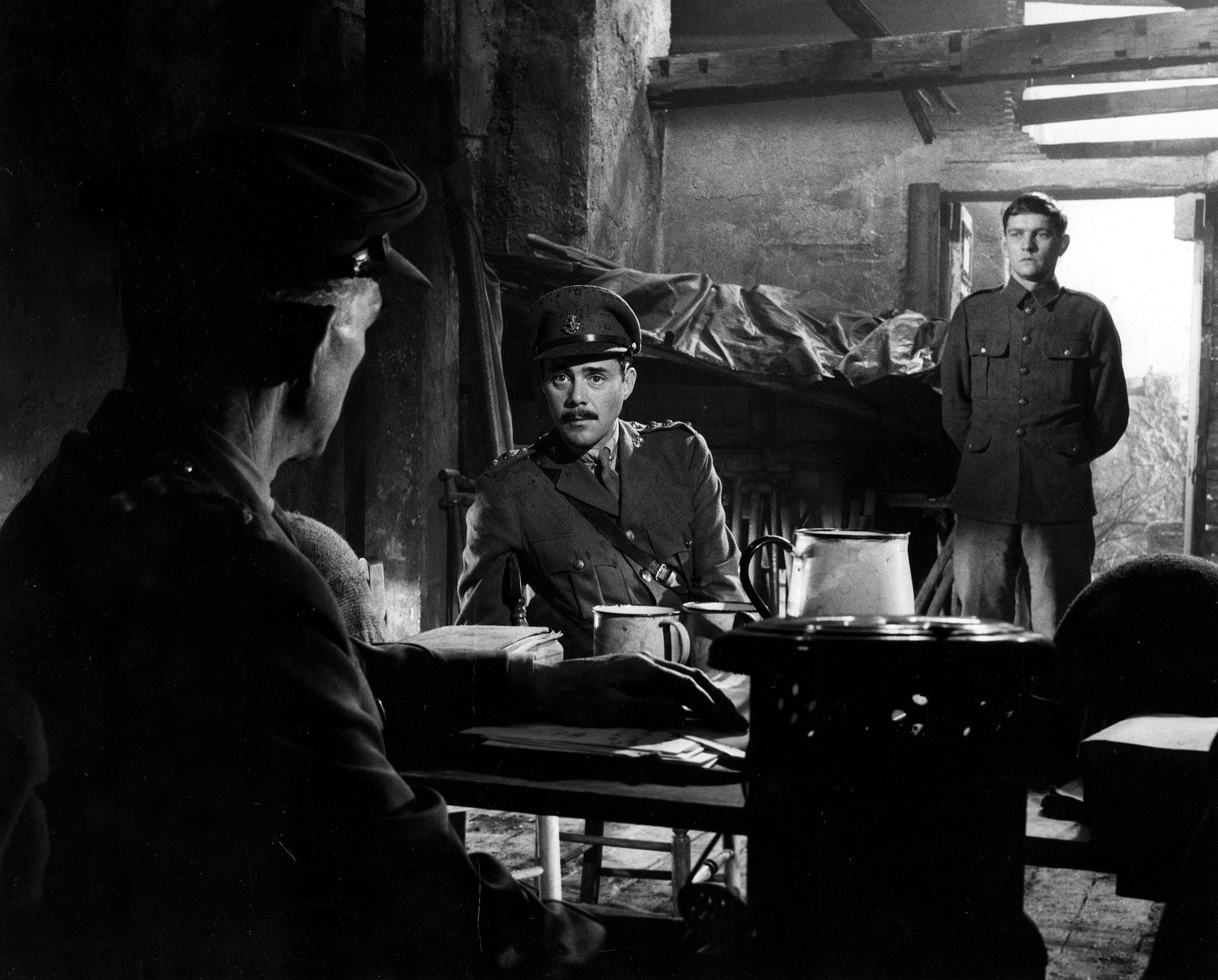by Dwight Macdonald
This film establishes Joseph Losey as a versatile director who commands a wide range of styles for wrecking a movie. In The Servant he flattened a potential comedy-melodrama under unremittingly pretentious “effects,” like dousing a hamburger with sauce bearnaise that is slightly off. Here he does the opposite, stifling a war movie by staging it as a photographed play that is denied all the resources of cinema except the close-up. “Completely different from The Servant,” Richard Roud writes in the program of the Second New York Film Festival, “King and Country is as classical as the former was baroque.” Well, that’s one way to put it. Another way would be to describe King and Country as TV drama—I’m told that John Wilson’s Hamp, on which it is based, was thought of originally for TV—rather than cinema. Except for three brief and stylistically jarring flashbacks to the outside world, Mr. Losey confines his camera to a few standard sets of trenches and dugouts—it’s the First World War—that look as phony as the ones I saw on Broadway in What Price Glory? and Journey’s End. This scenic poverty is matched by pernicious anemia of theme and plot. And banality. The theme is that war is hell and that court-martials are unjust—“Un desolato Film di Losey contro la Guerra” was the accurate headline in one Italian paper when the film was shown at the Venice Festival. The plot is that Private Hamp is a common soldier in His Majesty’s Forces—an all too common one, completely lacking in will, reason, individuality and other traits that are found to some extent in even the most deprived real person, though never in propagandist puppets. He has been through too much slaughter and after the butchery of the Passchendaele offensive has mindlessly started to walk back to London; he is caught, charged with desertion and, after a court-martial, executed. Although Tom Courtenay struggles manfully to get some feeling into .the role of Hamp, the part gives no toehold for human expressiveness since Hamp has become a zombie—and the ruin of a zombie is an all-downhill affair, about as dramatic as the killing of a cornered rat. Sure enough, Mr. Losey has his soldiers trap a rat and execute him after a mock court-martial. One gets the point. And after ninety minutes of visual deprivation and sledge-hammer moralizing one remembers with affection Stanley Kubrick’s treatment of the same war and the same theme in Paths of Glory.
—January 1965





